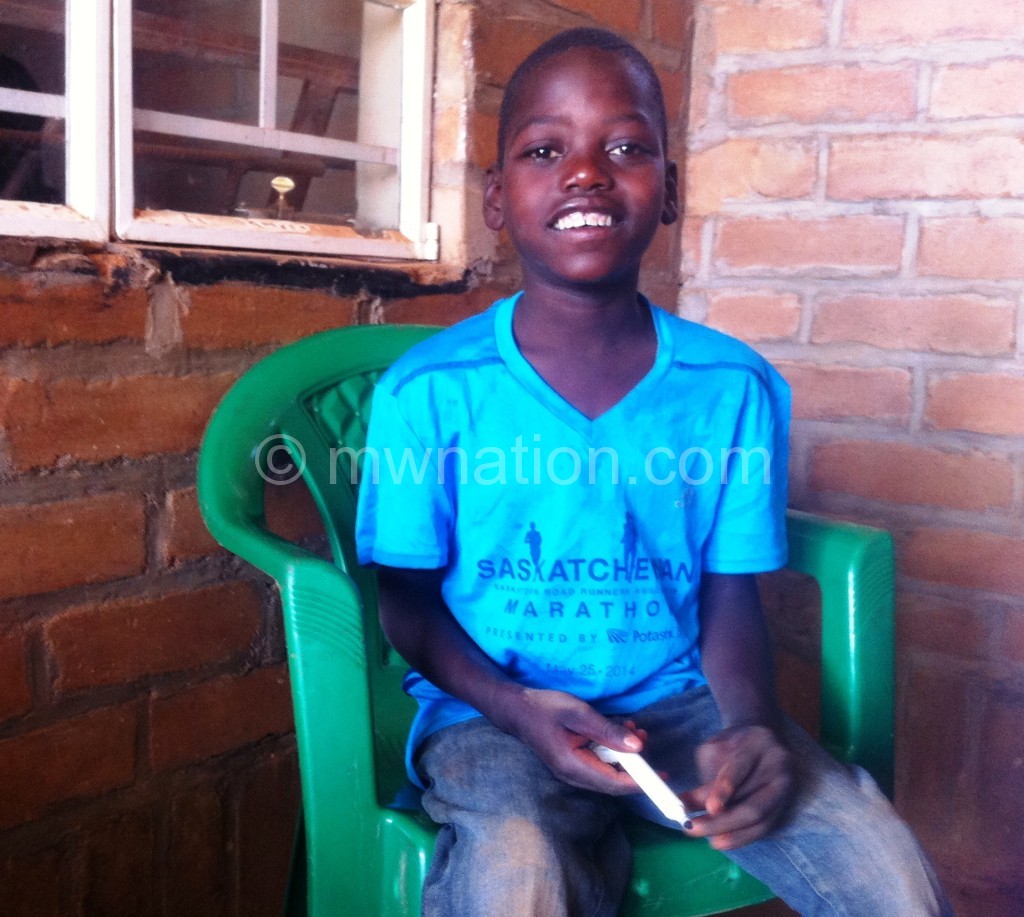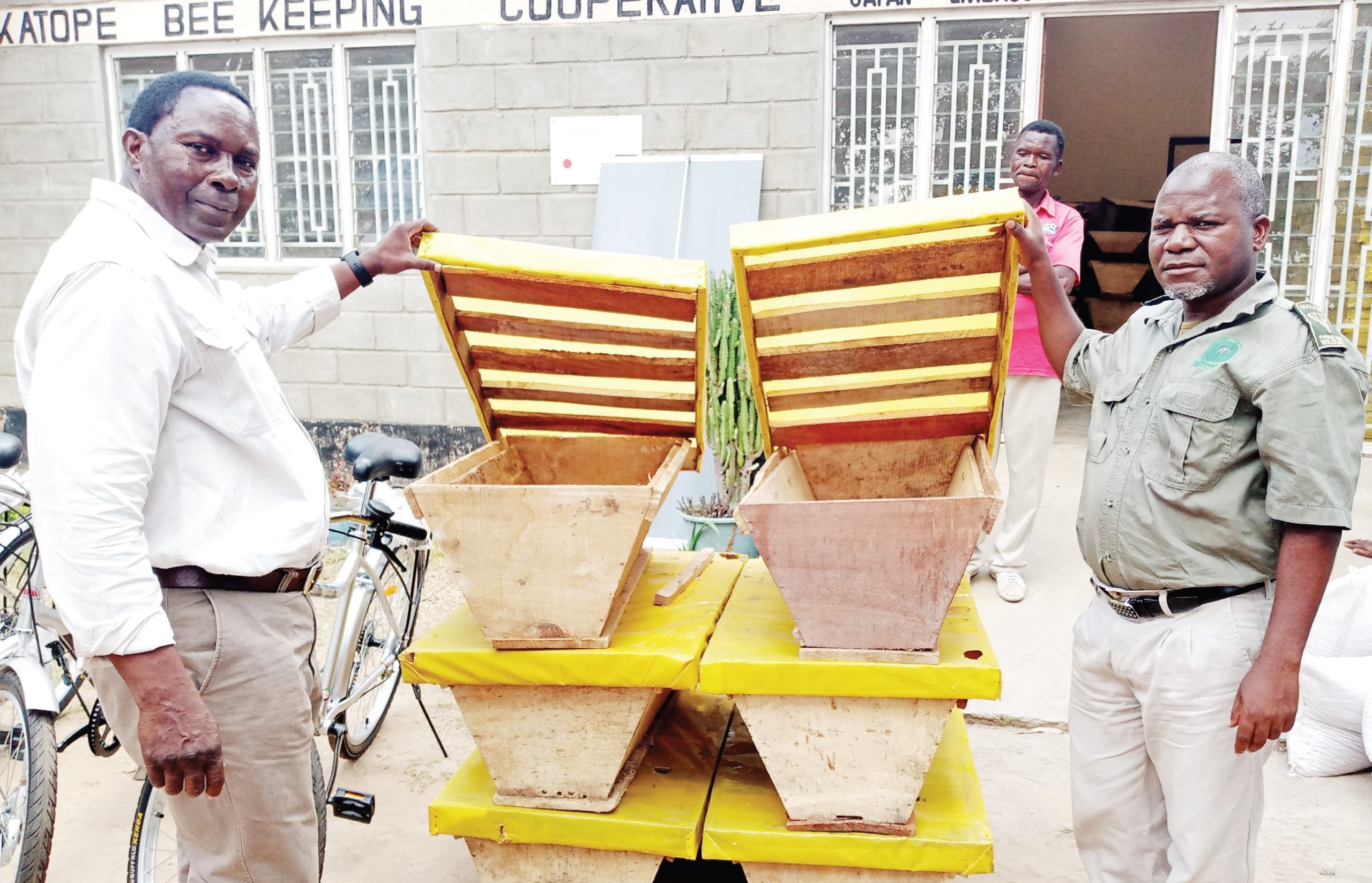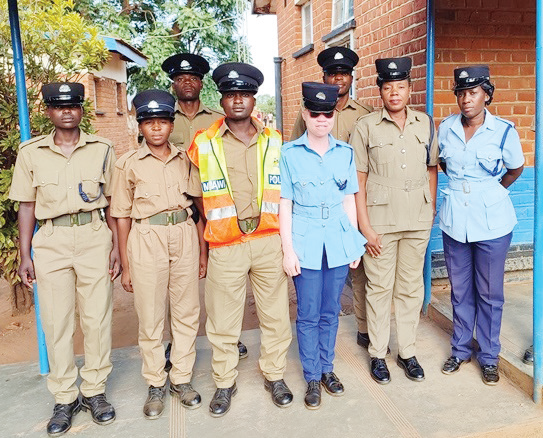Ending exclusion in inclusive education
In this last part of the inclusive education series, EPHRAIM NYONDO deepens the debate on what Malawi should do to make sure that children with disabilities are getting the best out of inclusive education.
Senior lecturer in inclusive education at Chancellor College, Dr Esther Kamchedzera, acknowledges that Malawi is making strides in addressing barriers to learning and participation of all learners at all levels of education.
She, rightly, argues that Malawi, despite not having a special policy on inclusive education, has localised most of international treaties on inclusive education.
In fact, she adds, the National Special Needs Education Policy makes it a point that “children with disabilities should receive adequate education to enable them to effectively contribute in social and economic development of the country”.
But nine-year old Kenneth Misheck, a Standard Four child with multiple disabilities learning at Kamwendo Primary School in Mchinji, barely agrees with the positive tunes Kamchedzera advances.
At his school, though well-furnished and disability friendly, Kenneth refuses to learn in an inclusive classroom. He prefers a segregated class with a special needs education expert.
He explains: “In a normal class [inclusive education class], our teacher speaks very fast. I fail to go along with the lesson. I always struggle to raise a question because I speak slowly.”
He does not stop there.
“But in a segregated class, my teachers speak slowly and I understand everything he teaches that is why I am able to get on position one during tests,” he explains.
The two worlds as seen from Kamchedzera and Kenneth represent the gap between theory and practice, policy and implementation of inclusive education in Malawi.
That is why most experts call for the need to move beyond policy and start getting inclusive education to pupils such as Kenneth so that they can start appreciating what it stands for.
To realise what inclusive education stands for, says Kamchedzera, the onus, in the first place, is on government to train more specialist teachers who will support the learners with special needs at all levels of education.
In addition, she adds, the Ministry of Education should ensure that all teacher training institutions should incorporate the issues of special needs and inclusive education.
“Government should purchase and distribute to the schools, colleges and public universities adequate special teaching and learning resources,” she explains.
“The schools, colleges and universities’ infrastructure and physical environment should be accessible to all learners,” says Kamchedzera.
Not only that.
“The sensitisation programmes on the issues of disability and inclusive education should be tightened so that people can change their mindset and attitudes towards people with special needs,” she explains.
She recommends that government can further mobilise support for such interventions by working hand in hand with the national and international organisations that deals with the issues of special needs and inclusive education.
Inclusive education expert, Malonje Phiri, currently working with Federation of Disability Organisations in Malawi (Fedoma), says collaboration is key.
Successful inclusive education does not require that every teacher have the expertise to meet the educational needs of every student, he says, adding: “Rather, giving teachers (both regular and special education) the opportunity to collaborate and develop new skills is a prerequisite for success.”
He also adds that support for learners with disabilities and the special teachers in the inclusive mainstream schools are essential.
“They must be viewed as members in the system rather than strangers or visitors. Therefore, treating them as visitors removes them from mainstream school and they lack sense of belonging in the system,” he says.
Phiri also sees parental involvement as key.
“Schools successfully practicing inclusion provide family-support services and opportunities for collaboration and communication. It is often the parents or caregivers who assume the role of advocate for a child,” he says.
Steven Ndhlovu, currently national education programmes coordinator for the Catholic Education Commission (CEC), says effective inclusive education should, in the first place, explore ways of curbing exclusion in an inclusive education classroom.
He says teachers should be accommodating through orientation on identification, and support to children with disabilities so that they are able to move at the same pace with the rest, and, therefore, avert cases of stigma and discrimination.
“Sometimes stigma and discrimination come in because children with disabilities are left to themselves to learn—without the slightest support—which may lead to failure, hence fellow students thinking children with disabilities cannot be able to make it in class.
Further to that, explains Ndhlovu, it should become mandatory that each school in Malawi should have a resource classroom and a resource teacher for children with disabilities.
“This should be where learners with difficulties can be given remedial classes. Government therefore needs to plan for deployment of more teachers with specialised skills in special needs so that we have one or more at each school,” he says.
Ndhlovu adds that government should ensure training and recruitment of the requirement number of teachers.
“With the current Pupil Teacher Ratio (PTR), which hovers around over 100 pupils to 1 teacher, defeats the practicality of a functional inclusive education. It requires that teachers have the expected maximum number of students (60 students or less) in a classroom. It is easy for a teacher to offer individual attention and support to the students in that way,” he explains.
Even civil society organisations (CSOs), explains Ndhlovu, must continue raising awareness on inclusive education.
“CSOs should pressurise government to take the education of children with disabilities seriously, for example, training more specialised teachers but also teachers in general,” he says.
Beyond pressurising, continues Ndhlovu, there is need to increase State and CSO monitoring of the education of children with disabilities, without which the plight of most children failing to access education will not be attended to.
“As we work in communities, CSOs working in education should act as eyes that ensure that children with disabilities are not just going to school, but also learning. In fact, it is important to sensitise communities on the need to create a conducive environment for children with disabilities to access education,” he says.
Concurring with Kamchedzera, Ndhlovu also calls on government to establish or set apart one teacher training college (TTC) to focus on special needs education.
“The country needs more special needs education to cushion the gap in the schools but also to act as facilitators that will train their colleagues who are already in the service. The purpose is to create awareness among all teachers on how they can identify and support students who require special attention, but also those who are experiencing challenges to learn effectively due to disabilities,” he says. n
Do you have a child with disabilities? GRAB a tip
Most parents of children with disabilities lower expectations for their children with disabilities. Doing so affects their future academic outcomes. Children need to be motivated and encouraged to learn.
Parents should evaluate the performance of their children frequently. Too often, learners with disabilities are not being involved in class or not given what they need because teachers think that they lack potential, are unintelligent or that something else are wrong with them.
Parents should not share teachers’ views on their children with disabilities because doing so demotivates them.
Parents have to understand their child’s disability than teachers. They have to take advisory role on disability status of their child for appropriate assistance to be given at school. People learn in different ways and everyone is unique. Some people need glasses to see, a quiet place to study, hearing aid for listening and hearing.
Never give up on their child. When their child with disabilities is struggling is when they need parents the most. All they can do as parents is providing unwavering love and support. Their child will face a lifetime of putdowns, lowered expectations, doubt, misunderstanding and people giving up on them if parents turn back on them.
Parents have to be patient, resilient, understanding. In most cases having a learner with a disability can be frustrating. They have to for them more than other know and they are not old enough or mature enough to appreciate it. They may spend additional time with them on their homework, collaborate more with their teachers than your other children, deal with their individualised education plan.—Source: Fedoma





